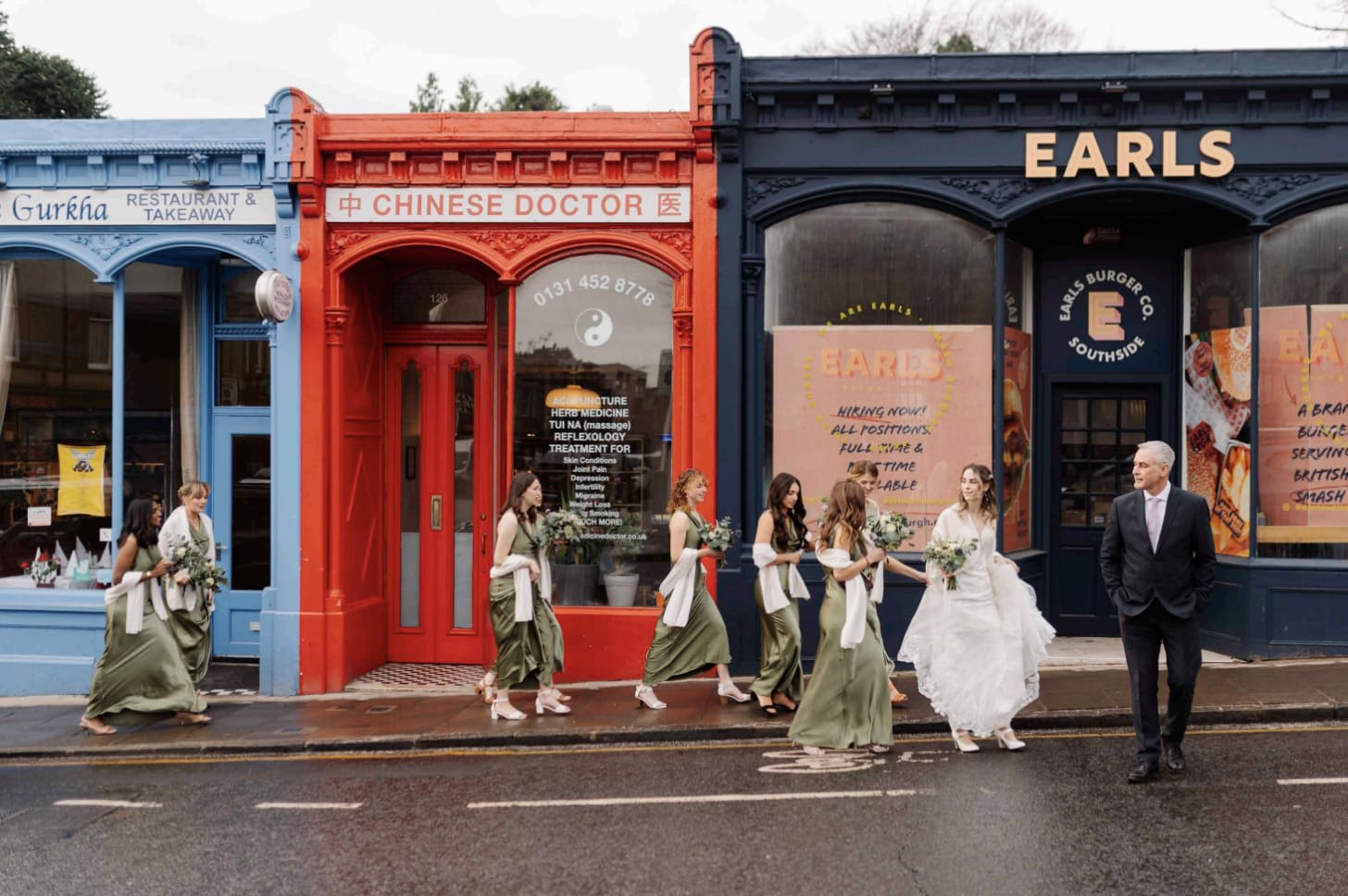Published on November 5, 2025 9:51 AM GMT
I’m on holiday with some Christian friends; they asked if I wanted anything for prayer.
I said I found driving in a foreign country stressful and that I hoped my younger brother would have success in his photography business.
After that, they prayed for each other and for me.
I stopped being a Christian six years ago, but I think prayer has some interesting features even if one doesn’t believe in the supernatural.
Upsides of prayer
Getting thoughts in order
When I am required to pray, I have to think about what to pray about. What is important to me? What do I feel troubled by or guilty about?
I take time in my day to do this anyway, but I sense many people don’t. Do you know what your most important goals or questions are? Perhaps imagine someone asks you for praye—what would you say? Is it what you’d expect? Perhaps consider talking through those things with someone.
Natural fulfilment of the prayer
Prayers cause people to spend time thinking about the thing they are praying about[1]. This is a solid problem solving method, even positing no deity. Perhaps while praying for my brother’s photography business one of the group might think of a friend who needs a wedding photographer. In this example, prayer would have worked[2] (though not supernaturally).
I think this could be improved by praying with a notepad and leaving silence to think about the answers to prayer. When I was a Christian, often I would want to get prayers over with and perhaps these days I would try and sit in the moment and see what comes to mind.
Closeness
I guess that thinking about someone fondly increases my closeness to them. This is even more true of group prayer. How often do my other friends sit in a circle, rapidly listen to each of their issues in turn and then spend time thinking about them? Not often! Notably prayer is pretty egalitarian—prayer requests are offered by both high and lower status members of a group, by loud and quiet people.
My Christian friends will offer care not just for each other but for their extended circle. I recall someone’s cousin going for an operation, or talking about my friend having a mental health crisis. In each case, the group offered to pray.
Groupthink
It’s interesting to note what things people do and don’t pray about. I am pretty sure that if I’d said I really wanted to find some friends to get drunk with, the prayer that was later spoken might have been censored somewhat to “please let Nathan find some friends”.
For good and ill prayer serves to signal to community members what is good and not good. I recall being at a church service where a woman asked for vengeance for the people killed in Israel on October 7th. She used very Biblical language (it was slightly shocking). That the minister didn’t try and round that set of prayers off said something about the church (eg by saying “and we pray for mercy on Palestinian civilians”).
Generally I think groups of people are better at thinking than individuals, so for many person to person problems, I imagine group advice will be better. For new kinds of problems or policy discussions, I imagine a typical small group’s reflexive answers might be worse.
Costly signalling
Let’s imagine someone offers to pray for me. Either they will do so, which suggests they do care for me. Or they lie, which, given my Christian friend’s beliefs on lying, is costly to them. Therefore I am more likely to believe that they care for me. This is an avenue of showing care that someone with integrity who doesn’t pray doesn’t have.
This might seem meaningless—I could tell you that I am going to make a donation in your name and then send it to you, or tell you that I was thinking of you. But each of those seems odd to me. Prayer is an existing social technology that performs this function. And it does affect me. I do appreciate when people offer prayer.
Deals
When my friends ask me for prayer suggestions, I give them. Partly for the above reasons, but partly because I like deals. They are behaving as if we are on the same team. I like that. I want to be on a team with my friends. I like forecasting, even though many don’t think it’s useful. If I suggested they give a prediction of a future outcome I hope they’d go with it for similar reasons.
Likewise, in some circumstances I am happy to pray for people if they ask. A friend’s child died and they asked for people to pray for them. If I were them, I would want prayers, even from people who didn’t believe it. I try and act as I would want someone else to do.
Downsides
If I am going to write the benefits I want to cover the downsides of prayer also:
Bad explanations
I have seen people thank the Christian god for finding parking spaces. Finding parking spaces is not a particularly rare thing to happen. If people nod to this, as humans often do, these people will be affirmed in believing that a deity is micromanaging their parking experience. I imagine this leads to quite warped perspectives on the world.
Many things have this feature, whether prayer, astrology, vaccine scepticism. Most of these aren’t too expensive… until they are.
How to pray
I think there is something quite alive-feeling in discussing how I actually used to pray. I have prayed 10,000s of times and it was once a deep part of my routine.
This was my personal practice, as a fairly conservative evangelical Christian, so other Christians probably do it differently.
Quick prayers
If I needed help or confidence I might pray a single line while feeling scared walking home at night.
“Please help me get home safe”
I prayed like this five or more times a day. Some Christians call them “arrow prayers” in that you fire them off quickly.
Morning prayer
I would read my Bible each morning and then pray. My general practice was as follows:
- Lifting God upThankfulnessAsking for forgivenessAsking for help for myself and others
A prayer might go as follows:
“Dear God,
You are mighty and gracious, you have made the mountains and the sunsets.
Thank you that I am able to come on this holiday. Thank you for my friends and their kindness.
I am sorry for not helping tidying up the food as much as I could have.
Please could you help Tim with his low energy. Help Anne with her relationship with her sister.
Please help me to know what I want to work on next.
Please end the conflicts in Ukraine and Gaza and help people in poor nations to have more economic growth.
In Jesus’ name,
Amen”
Group prayer
A third common type of prayer is group prayer. People might go around the circle and say what is troubling or important to them. Then there might be a quiet time where anyone can pray into the silence:
“Dear God,
Please help Anne in her relationship with her sister.
Amen.”
A fun feature of group prayer is the second “amen”, which many Christians will recognise. After the group has prayed for a while and there has been a long silence since the last prayer, some leader will say a slow “amen” (often aaaaamen) to bring the session to a close.
Thoughts and reflections
I have tried here to give a fairly unvarnished account of prayer.
While I was a Christian, I saw this kind of prayer as natural, but looking again, I imagine it could seem bizarre, informal or contrived. Is this really the way to talk to the creator of the universe? There is a notion in evangelical churches of God as Father vs God as Dad. This highlights our fathers as authority figures vs someone we are relaxed around. Different people think that different tones are appropriate.
I still pray sometimes, though rarely. I find it can settle my mood when I’m extremely stressed.
I find this a little hard to talk about because I predict people will assume a lot based on what I say. I guess I wish people didn’t do that. Can’t agnostics have opinions on prayer too? Can’t an experience be raw without necessarily implying that there is some deep truth I’m hiding from myself? Honestly, I find it tiring.
I think we can take too binary an approach to truth sometimes. I am not surprised to find something that billions of people do has use even if the supernatural isn’t true. It’s easy for agnostics to throw this stuff out without thinking why people do it in the first place.
Will my children meditate? If I meditate on things as a non-religious replacement to prayer, will my children? I find we often don’t consider how we will propagate the ways we are to the next generation and as an ex-Christian, I think about this often. I see Christians passing on their habits, but it seems to be likely much more difficult for me.
Thanks to Manifest (the Manifold conference) for being the forcing function for me to originally think about these ideas.
Here is the Substack menu image[3] I used.
- ^
Note this isn’t solely restricted to Christian practice, meditation has some of these benefits too.
- ^
Get in, loser, we’re fulfilling prayers. My brother’s wedding photography portfolio is here.
Photo by Alex Young. Image of my cousin, her bridesmaids and her father - ^
I asked for photos they’d taken that might be suitable for an article on prayer and this one is frankly absurd. What an image! I find this analagous to the prayer discussion, in that you might think it's pro-religion to like this image because it's symbolism is so clear, but.. it's beautiful regardless.
Discuss



